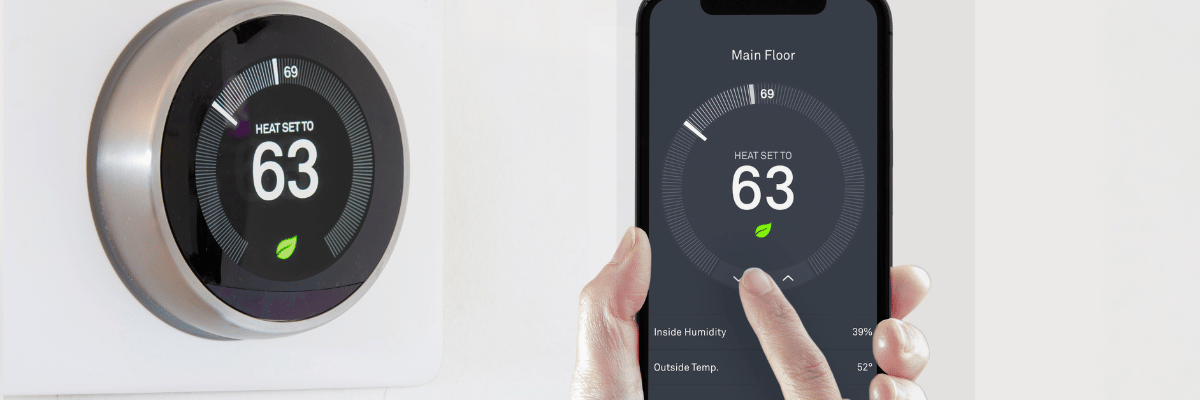
Understanding Your Hydro Bill in Toronto, Ontario: A Comprehensive Guide
Tuesday Jul 11th, 2023
Understanding Your Hydro Bill in Toronto, Ontario: A Comprehensive Guide
As a resident of Toronto, Ontario, it's essential to grasp the concept of a hydro bill and its significance in your day-to-day life. A hydro bill, also known as an electricity bill, is an invoice or statement that outlines the cost of electricity consumed within a specific period. It serves as a crucial document issued by the local utility company responsible for generating and distributing electricity in Toronto.
Managing your energy consumption becomes paramount when it comes to your hydro bill. By understanding how your electricity usage translates into costs, you can take proactive measures to reduce your consumption and subsequently lower your bill. This is especially crucial for residents of apartments and condominiums, where energy usage can have a significant financial impact.
The hydro bill reflects not only your energy consumption but also the shared energy usage of the entire building. Consequently, adopting energy-efficient practices within apartments and condominiums can lead to substantial savings for residents collectively. Moreover, reducing energy consumption contributes to environmental sustainability, making it a win-win situation for both your wallet and the planet.
In the following sections, we will delve deeper into the various components of your hydro bill, provide tips for managing your electricity usage, and highlight the benefits of energy efficiency within apartments and condominiums. By the end, you'll have a comprehensive understanding of how to navigate your hydro bill effectively while making informed choices that align with your financial and environmental goals.
Table of Contents:
- What is a Hydro Bill?
- Importance of Understanding Hydro Bills
- Tips for Managing Your Hydro Bill
- How Hydro Bills are Calculated?
- Understanding Your Hydro Bill
- Tips for Managing Your Hydro Bill
- Benefits of Energy Efficiency in Condominiums
- Conclusion
- Hydro Bill FAQs
What is a Hydro Bill?
In simple terms, a hydro bill is an invoice or statement that provides a comprehensive breakdown of the cost of electricity you have consumed within a specific period. It serves as a crucial document that helps you understand and manage your energy expenses. The term "hydro bill" is commonly used in Canada, particularly in Ontario, where hydroelectric power is a significant source of electricity.
The hydro bill is issued by your local utility company, which is responsible for generating, transmitting, and distributing electricity in Toronto. It outlines the charges and fees associated with your energy usage, providing you with a clear understanding of the financial aspects of your electricity consumption.
When you receive your hydro bill, it typically includes detailed information such as:
Energy Usage: The amount of electricity you have consumed, measured in kilowatt-hours (kWh), during the billing period.
Rates and Pricing: The cost of electricity, which can vary depending on factors such as time-of-use pricing or tiered pricing structures.
Delivery Charges: Charges associated with the delivery of electricity from the utility company to your property.
Regulatory Fees and Taxes: Additional fees or taxes imposed by regulatory bodies or government entities.
Billing Cycle and Due Dates: The duration of the billing cycle and the deadline for paying your hydro bill.
By reviewing and understanding your hydro bill, you can gain insights into your energy consumption patterns, identify opportunities for energy savings, and make informed decisions to manage your electricity costs effectively.
Understanding Your Hydro Bill
To gain a comprehensive understanding of your hydro bill, it's important to break down its various components. Let's explore the key elements typically found in a typical hydro bill:
1. Energy Usage:
Energy consumption is measured and recorded in kilowatt-hours (kWh) on your hydro bill. It reflects the amount of electricity you have used during the billing period. The more energy you consume, the higher your usage charges will be.
2. Rates and Pricing:
The rates and pricing structure can vary depending on factors such as time-of-use pricing or tiered pricing. Time-of-use pricing means that the cost of electricity varies based on the time of day, with peak, off-peak, and mid-peak rates. Tiered pricing, on the other hand, involves different rate levels based on the amount of electricity consumed. It's important to understand the rate structure applicable to your hydro bill, as it can significantly impact your billing amount.
3. Delivery Charges:
Delivery charges on your hydro bill are associated with the costs of delivering electricity from the utility company to your property. These charges cover the maintenance, operation, and expansion of the electricity distribution infrastructure. Delivery charges are separate from energy consumption charges and can vary based on your location and the type of property you reside in.
4. Regulatory Fees and Taxes:
In addition to energy usage and delivery charges, your hydro bill may include regulatory fees and taxes. These fees are imposed by regulatory bodies or government entities and are intended to fund various programs or initiatives related to electricity generation, conservation, and environmental sustainability. It's important to review these fees and taxes to understand their impact on your overall billing amount.
5. Billing Cycle and Due Dates:
The billing cycle refers to the duration of the billing period, which can vary depending on your utility company's practices. It's typically a monthly cycle, but some utilities may have different billing frequencies. Pay close attention to the due dates mentioned on your hydro bill and ensure timely payment to avoid penalties or late fees. Timely bill payment is crucial to maintaining a good credit history and avoiding any interruptions in your electricity service.
Understanding each component of your hydro bill enables you to analyze your energy consumption, identify areas for potential savings, and make informed decisions to manage your electricity costs effectively.
Tips for Managing Your Hydro Bill
Managing your hydro bill effectively involves adopting energy-saving practices and making conscious choices about your electricity usage. Here are some practical tips to help you reduce your hydro bill:
1. Use Energy-Efficient Appliances and Lighting:
Invest in energy-efficient appliances with high Energy Star ratings. These appliances are designed to consume less electricity while delivering the same level of performance. Similarly, switch to LED or CFL light bulbs, as they use significantly less energy and have a longer lifespan compared to traditional incandescent bulbs.
2. Adjust Thermostat Settings for Heating and Cooling:
Lowering your thermostat by just a few degrees during the winter months and raising it slightly in the summer can result in noticeable energy savings. Consider using a programmable thermostat to automatically adjust temperature settings based on your daily routine, ensuring optimal comfort while minimizing energy consumption.
3. Unplug Electronics and Appliances When Not in Use:
Many electronics and appliances continue to consume power even when they are turned off but remain plugged in. This phenomenon is often referred to as "phantom power" or "vampire power." To eliminate unnecessary energy usage, unplug devices or use power strips with on/off switches to cut off power completely when items are not in use.
4. Insulate Windows and Doors to Prevent Heat Loss:
Properly insulating windows and doors can significantly reduce heat loss during the colder months and prevent cool air from escaping during the summer. Install weatherstripping, caulking, or thermal curtains to minimize drafts and maintain a more comfortable indoor environment without relying heavily on heating or cooling systems.
5. Take Advantage of Time-of-Use Pricing:
If your hydro bill utilizes time-of-use pricing, take advantage of off-peak hours when electricity rates are lower. Shift energy-intensive tasks such as running the dishwasher, doing laundry, or charging electronic devices to these off-peak hours. By doing so, you can optimize your electricity usage and reduce costs.
By incorporating these energy-saving tips into your daily routine, you can proactively manage your hydro bill and achieve significant savings while promoting a more sustainable lifestyle.
Benefits of Energy Efficiency in Condominiums
Energy-efficient practices in apartments and condominiums offer numerous advantages for residents, including cost savings, environmental benefits, and increased comfort. Let's explore these benefits in more detail:
1. Cost Savings:
Implementing energy-efficient practices can lead to substantial cost savings for residents. By reducing energy consumption, residents can significantly lower their hydro bills. Energy-efficient appliances, lighting, and HVAC systems consume less electricity, resulting in long-term savings. In addition, energy-saving measures can help mitigate future utility rate increases, providing financial stability for residents.
2. Environmental Benefits:
Embracing energy efficiency contributes to a greener and more sustainable environment. By reducing energy consumption, apartments and condominiums can play a crucial role in reducing greenhouse gas emissions. Energy-efficient practices help conserve natural resources and minimize the carbon footprint associated with electricity generation. By collectively adopting these measures, residents can actively contribute to a cleaner and healthier planet.
3. Increased Comfort and Well-being:
Energy-efficient upgrades in apartments and condominiums can enhance residents' comfort and well-being. By optimizing insulation, sealing air leaks, and upgrading heating, ventilation, and air conditioning (HVAC) systems, indoor temperature control becomes more efficient and consistent. Improved thermal comfort leads to a better living environment, ensuring residents' comfort and promoting a healthier indoor atmosphere.
4. Incentive Programs and Rebates:
Condo residents in Toronto have access to various incentive programs and rebates for energy-efficient upgrades. These programs aim to encourage and support the adoption of energy-saving measures. They provide financial incentives, such as rebates or grants, to offset the costs of energy-efficient appliances, HVAC upgrades, insulation improvements, and more. By taking advantage of these programs, residents can maximize their cost savings while making energy-efficient upgrades more affordable.
By embracing energy efficiency in apartments and condominiums, residents can enjoy tangible benefits, including cost savings, environmental preservation, and increased comfort. Furthermore, the availability of incentive programs and rebates in Toronto provides additional support and financial incentives to encourage energy-efficient upgrades.
Conclusion
In conclusion, understanding and managing your hydro bill is essential for Toronto residents living in apartments and condominiums. By implementing energy-efficient practices and making conscious choices about your electricity usage, you can experience a range of benefits, including cost savings, environmental preservation, and increased comfort. Let's recap the main points covered in this guide:
- A hydro bill represents the cost of electricity consumed within a specific period and is issued by the local utility company.
- Understanding your hydro bill involves breaking down its components, such as energy usage, rates and pricing, delivery charges, regulatory fees and taxes, and billing cycle details.
- Managing your hydro bill effectively requires adopting energy-saving tips, including using energy-efficient appliances and lighting, adjusting thermostat settings, unplugging electronics and appliances when not in use, insulating windows and doors, and taking advantage of time-of-use pricing.
- Energy efficiency in apartments and condominiums brings multiple benefits, including cost savings, environmental benefits, and increased comfort.
- Toronto residents can explore incentive programs and rebates available for energy-efficient upgrades, further maximizing their savings and promoting sustainable practices.
We encourage you to take action and implement these energy-saving measures in your daily life. By monitoring your hydro usage and making conscious choices about energy consumption, you can reduce your bills and contribute to a greener future.
To stay updated on energy-saving tips and news, we invite you to sign up for our newsletter. You'll receive valuable insights, resources, and exclusive offers directly to your inbox.
Start your energy-saving journey today and make a positive impact on your hydro bills and the environment!
Hydro Bill FAQs:
What is a Hydro Bill?
A hydro bill is an invoice or statement that shows the cost of electricity consumed within a specific period. It is issued by the local utility company responsible for generating and distributing electricity. The hydro bill reflects the energy usage measured in kilowatt-hours (kWh) and includes various components such as rates, delivery charges, regulatory fees, taxes, and billing cycle details. Understanding your hydro bill is essential for managing energy consumption and its financial impact on apartments and condominiums.
Why is my Hydro Bill so high?
If you're wondering why your hydro bill is unusually high, there could be several factors contributing to it. First, it's important to assess your energy usage and check if there have been any changes in your consumption habits. Factors such as increased appliance usage, inefficient equipment, or extended periods of extreme weather can result in higher energy consumption. Additionally, fluctuating energy rates, changes in billing cycles, and seasonal variations in energy demand may also impact your bill. Conducting an energy audit, ensuring energy-efficient practices, and identifying potential areas of improvement can help you reduce your hydro bill and manage your energy usage more effectively.
What is the delivery charge on a hydro bill?
The delivery charge on a hydro bill is the fee associated with the delivery of electricity to your property. It covers the cost of maintaining and operating the infrastructure needed to distribute electricity, including power lines, transformers, substations, and other related equipment. The delivery charge is separate from the cost of actual electricity consumption, which is calculated based on the energy usage measured in kilowatt-hours (kWh). The delivery charge is determined by the local utility company and is typically a fixed or variable amount based on factors such as the size of your property, distance from the distribution network, and other regional considerations. Understanding the delivery charge on your hydro bill is important for comprehending the breakdown of costs associated with the reliable supply of electricity to your home or business patners.






Post a comment